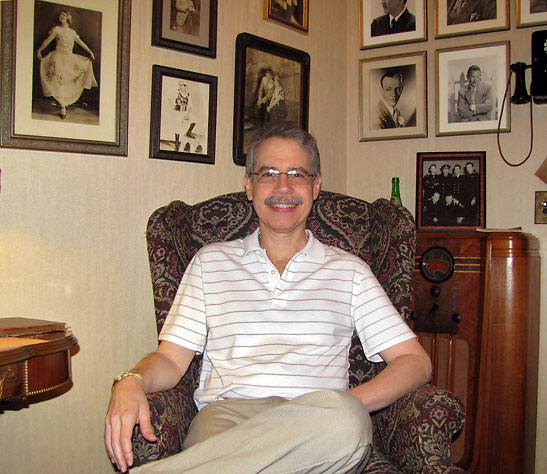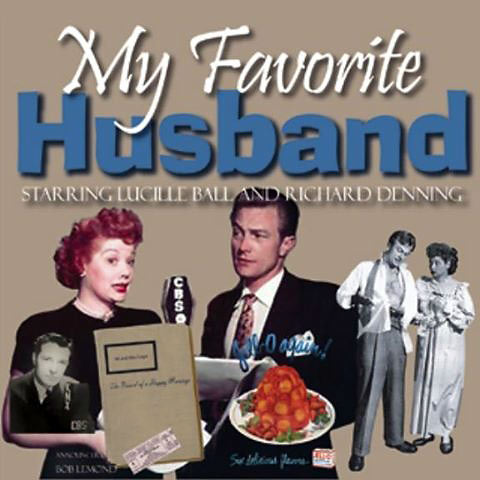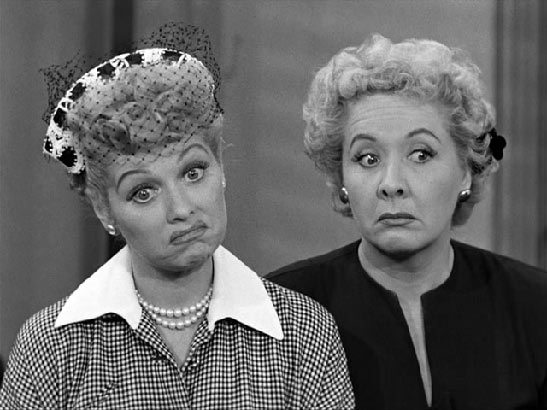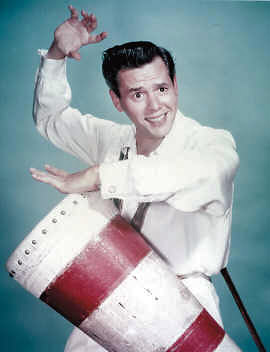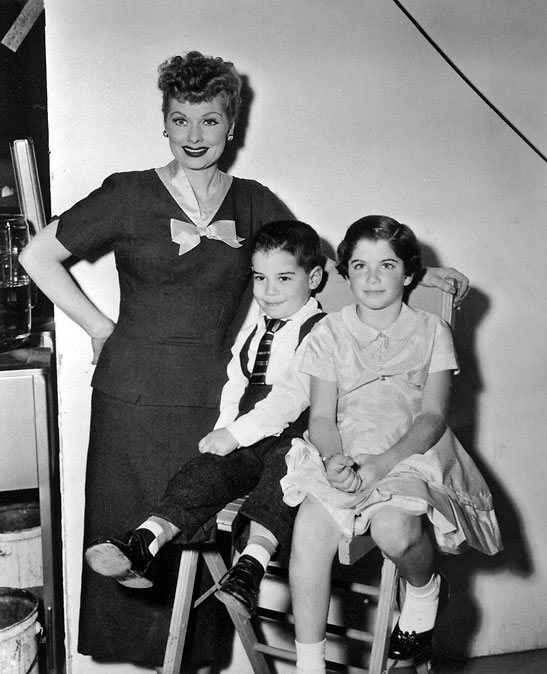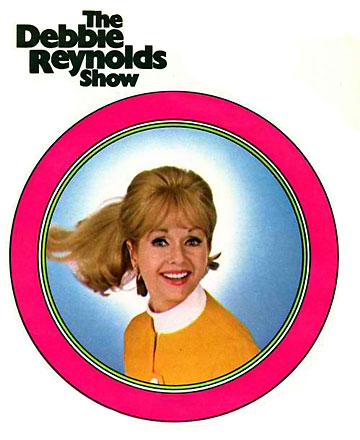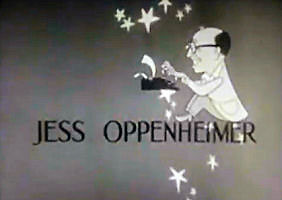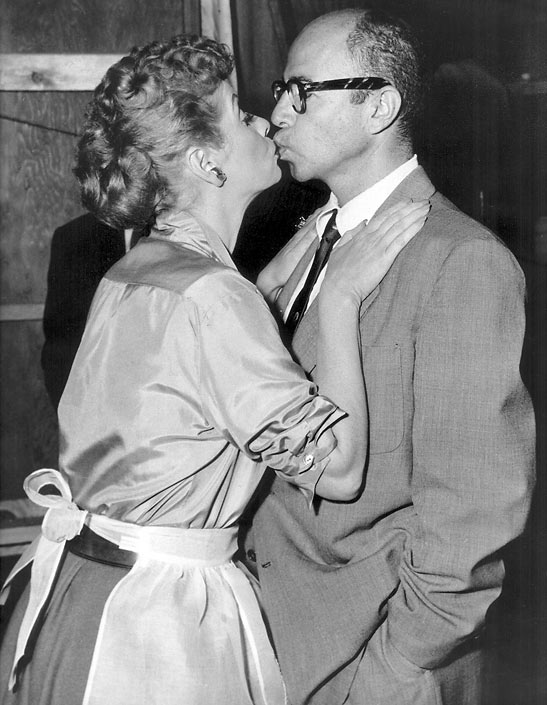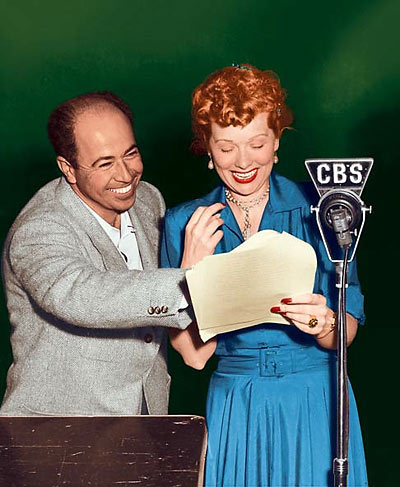 |
 |
|
 |

|
Gregg Oppenheimer,
Son of "I Love Lucy" Creator, Remembers his Dad, Jess Oppenheimer By Beverly Cohn
After his father's death in 1988, Gregg spent several years doing research to complete his father's unfinished memoirs – "Laughs, Luck... and Lucy: How I Came to Create the Most Popular Sitcom of All Time." He was the recipient of two TV DVD awards for producing "I Love Lucy," DVDs for CBS, subsequently becoming Gregg, who lives with his wife Debbie in Santa Monica, recently sat down with your reporter for an exclusive, in-depth interview and the following has been edited for content and continuity.
What was the genesis of the original version of your play "I Love Lucy: The Untold Story?" Gregg: I had the notion of turning my book into a screenplay. So, I started writing scenes based on things that happened in the book, but I really didn't know how to make a movie out of it. Then, in 2011, the 100th anniversary of Lucille Ball's birth, I was invited to come to Jamestown, where she was born, and was asked to direct a recreation of "My Favorite Husband," which was her radio program. Since 1998, I've been directing recreations of radio programs and decided this was a good time to force myself to do something with all the scenes I had written. I told them I had a play, and asked if I could do that too and they said sure. So then I had to finish it. How is the old version different from the new version, which will be staged on October 6th at the University Synagogue?
Gregg: The main difference is I've added a scene in the booth the night they shot the pilot and there are also several scenes involving how they found and cast Vivian Vance as Ethel Mertz. What would you like to have happen after that reading? Gregg: I'd like to have it mounted somewhere. It's up in the air and I'm taking it one day at a time. What draws you to radio vs. television or film? Gregg: I've been in love with radio as a dramatic medium since I discovered some old transcription discs of my dad's that he wrote in 1939 for "The Screen Guild Theater." I thought they were fantastic so I started collecting old-time radio shows, which, at first, were on reel-to-reel tapes and discs. Then, in the late 90s, I started going to old-time radio conventions and discovered that there was this whole group of people who loved it as much as I do, including some of the old-time radio veterans who recreated some of the shows. I decided to get involved in that and started directing. What are some of the advantages of doing radio? Gregg: You can do anything and the nice thing about it, like Mickey Rooney and Judy Garland – you can put on a show and you don't need a lot of money to mount it because you don't have any sets or costumes and nobody has to memorize anything.
Why do you think people are still fascinated with "I Love Lucy" and continue to watch the reruns? Gregg: It's timeless comedy. It was what people needed at the time and was really well done in many respects. It wasn't topical, it wasn't political, and it wasn't the culture of that time. It was just something that everybody could identify with and it combined the best of a whole lot of different things. It had aspects of a variety show because it had music, and that's very unusual for television. There are a couple of exceptions like "Treme," but other than that, if you watch music on television, it's pre-recorded, but what you saw on "I Love Lucy" was a live performance. It also had vaudeville and dramatic aspects. How did your dad get attached to the show? Gregg: He came up with the premise for the show. In 1948, he was writing Fanny Brice's radio show "Baby Snooks." Brice got into an argument with the network over the lowering of her salary because they were decreasing radio budgets and increasing television budgets. So they wanted her to take a slight cut in her salary, which she wouldn't do so she walked off the show and all of a sudden, my dad was out of a job. He wrote a couple of free-lance things and then Harry Ackerman at CBS called him and said we have this new show for Lucille Ball and asked if he would write a script for them because "The Adventures Ozzie & Harriet" writers were writing it but at the end of the summer, they would have to go back to Ozzie and Harriet. He said sure and wrote a script and changed Lucy's character from a socialite, bank president's wife to a grown woman in a little girl's body. She basically became Baby Snooks and I think that's part of the reason why "I Love Lucy" stays so popular because a lot of people discovered it when they were kids and a lot of kids can identify with Lucy because she's basically playing a kid.
What was life like growing up with this incredibly talented dad? Gregg: Well, during the 50s, I was very young but everything seemed normal to me. As a five-year-old, I wasn't hanging around the set a lot but even if I did, I didn't appreciate how famous he was. I was very excited to be allowed there at all. I couldn't read but I knew the tickets to the show said "No children under 12 allowed." My dad would have a show and then we'd have a viewing party and people would come over to watch. It was a lot of fun reading my dad's name in the paper and in the trades and I grew up reading the trades and scripts. What kind of dad was he? Gregg: He was a wonderful dad. He didn't go to Hollywood parties and didn't pal around with movie stars. There were some actors he was friendly with like Hans Conried and his family and Carl Reiner and his family. They were close friends but, for the most part, our friends were people who lived in our neighborhood and not people in the industry.
What drew you back to your dad's world? Gregg: I was always drawn to it. I loved hanging around my dad at the studio or watching film and learning about it. When I graduated from high school, my dad was doing "The Debbie Reynolds Show" at MGM. I had six months before I headed off to college so I asked my dad if I could get a job at MGM and he said no. He didn't believe in nepotism, but said I could hang out there. Now Sony had just come out with the first home videotape machine, which cost several thousand dollars and Pali High (Palisades) had bought one to tape all the sporting events and since I was the manager of the gymnastics team, I learned how to use it. They had decided to videotape the rehearsals of Debbie's show and the guy, who was supposed to do it, didn't show up the first day, so I did it. At the end of the day, the production manager asked me if I wanted a job and I said you have to ask my dad and it was ok with him because he had nothing to do with me getting the job. So, I worked on the "The Debbie Reynolds Show" and loved hearing stories from actors waiting for their scenes such as Tom Bosley, Al Molinaro, and Debbie Reynolds, all of whom had great stories.
Beside his extraordinary success, what did you admire about your dad? Gregg: It had to do with his success. He was a really an intelligent guy and was always learning about lots of things. I was very close to him. We use to finish each other's sentences. I really admire people who can make people laugh. It's something people need and he liked nothing more than to tell someone a funny story and he was a very good storyteller. Was he born with his wonderful gift? Gregg: I don't know because he was not a popular kid and had a very unhappy childhood. He didn't do all that well in school because he had an eye problem – he saw double and didn't realize that he saw double. So, he had problems with concentration, reading, and attention span, which wasn't diagnosed until he was in the service during World War II. The ironic thing was that it wasn't until I was a sophomore at MIT that I realized I had the same problem. I was seeing double and thought that was normal. So I got glasses and became a Visual Studies major in the School of Architecture.
What was his philosophy on comedy writing? Gregg: He said in order to be a comedy writer, you had to be seriously maladjusted as a child. (Laughs) He wasn't raised Jewish but his mother said if anybody asks, tell them you're Jewish and proud of it. That got him beat up a lot but he learned that if he could make people laugh, they would accept him and invite him places. I think that's how a lot of people got into the comedy business. When he was in elementary school, he was selected for a gifted child study and people who interviewed him noted that he seemed to have no visible sense of humor so it must have come later.
What was the best advice he ever gave you? Gregg: My dad really wasn't one to dispense a lot of advice. Instead, I learned from him through his example – his integrity and the way he treated people with respect and kindness. He had a reputation as one of the nicest guys in Hollywood. One thing we did talk about, though, was his views on comedy writing, even if he didn't view it at the time as "advice" because he never expected me to go into the business. The best comedy-writing tip he gave me was never to have a character do or say something just to be funny. Unless it's true to the character – something that the character would logically and believably do or say in that situation – you may get a laugh, but it will destroy the reality of the situation and remind the viewer that he's just watching actors perform, which is the last thing you want to do. "Going for the laugh" at the expense of character or story is something they never did on " I Love Lucy." In Part 2, Gregg talks about keeping his father's
legacy alive as well as some of his own creative talents. |
This site is designed and maintained by WYNK Marketing. Send all technical issues to: support@wynkmarketing.com

|






